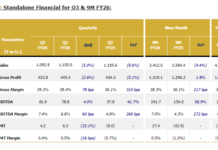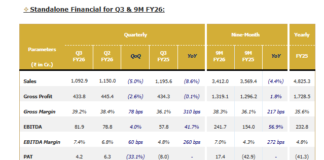
The Synthetic and Rayon Textiles Export Promotion Council has sought higher duty drawbacks, rebates of State and Central taxes and levies (RoSCTL), and Remission of Duties or Taxes on Export Products (RoDTEP) citing delays and steep increase in freight rates and insurance premium due to the crisis in the Red Sea.
Red sea is one of the busiest trade routes that connects Europe and Asia through the Suez Canal and for the last few days, cargo ships passing through the Red Sea are being attacked by militants.
“As a result of the attacks, Ships are reportedly taking a 6000 nautical miles detour around Africa which means an additional 15 days transit time that is causing steep increase in freight rates and insurance premium,” said Bhadresh Dodhia, chairman, Synthetic & Rayon Textiles Export Promotion Council.
Freight rates to European ports from India have already increased by 40% with a strong possibility of further increase which will increase shipping costs for exporters of textiles and clothing, he said.
Highlighting that the deteriorating situation in the Red Sea is a matter of serious concern, Dodhia said if the crisis is prolonged and not contained quickly, it will not only have an adverse impact on exports from India but will severely disrupt the global supply chain and hurt the world economy.
He urged the government to provide support to the textile and clothing exporters as majority of shipments of textiles and clothing pass through the Suez Canal, which connects the Red Sea and the Mediterranean Sea.
This, Dodhia said, is crucial, as freight rates have stabilised in recent times after witnessing a steep increase in rates during Covid-19 and the current crisis in the Red Sea has once again pushed up freight rates, which is not good for the exporters.











